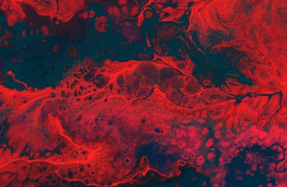Cathy Park Hong: I’m So Sick of the Fact That It’s Not Changing

I first saw poet and critic Cathy Park Hong read at a staged performance of the late Theresa Hak Kyung Cha’s cross-genre memoir Dictee in 2011, on what would have been that poet’s sixtieth birthday. A few years later in her 2014 essay, “Delusions of Whiteness and the Avant-Garde,” Hong declared, “To encounter the history of avant-garde poetry is to encounter a racist tradition.” Noting that the reputations of many poets of color, including Cha, “have long been battened under the banner of ethnic studies but are rarely regarded as core figures in experimental poetry,” Hong embarked on a vibrant and righteous campaign to correct the record and rebuke the poetic tradition that had long ignored, erased, and marginalized these writers and their contributions. Among others, she credited poet and scholar Evie Shockley’s work on writers of the Black Arts Movement, contemporary poets of color including the Black Took Collective and Bhanu Kapil, and the late visionary artist, Cha. Hong’s essay concludes: “Fuck the avant-garde. We must hew our own path.”
In Hong’s most recent book, Minor Feelings: An Asian American Reckoning (One World, 2020), she has accomplished just that. Following three poetry books and fellowships from the Guggenheim Foundation and the National Endowment for the Arts, Hong’s first book of essays ranks as an essential text for this cultural and political moment.
Hong’s notion of “minor feelings” complicates the trope of “grateful immigrant” and the myth of the “model minority” before dismantling them entirely. Hong defines minor feelings as “the racialized range of emotions that are negative, dysphoric, and therefore untelegenic, built from the sediments of everyday racial experience and the irritant of having one’s perception of reality constantly questioned or dismissed.” In seven sharp, expansive, and thoughtfully digressive essays, she explores Richard Pryor’s comedy and the problematics of internalizing a white audience (“Stand Up”); she reflects on discrimination in academia and describes the news coverage of Asian American United passenger David Dao (“United”); she muses on her important friendships with other Asian American artists at Oberlin (“An Education”) and details the search for a culturally competent therapist (also in “United”). The exacting brilliance and forceful truth on display here will earn Minor Feelings a place alongside the work of Sara Ahmed, bell hooks, Audre Lorde, Claudia Rankine, and Adrienne Rich. In the book’s penultimate essay, “Portrait of the Artist,” Hong writes in greater depth about Cha’s life, death, and work. Hong’s words read as vital, prophetic, and corrective, calling forth the writers of color who have been excised from artistic lineages
You’re reading a preview, subscribe to read more.
Start your free 30 days





